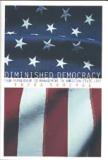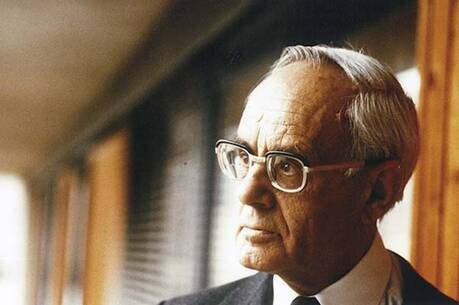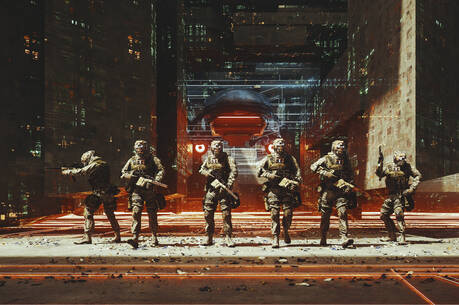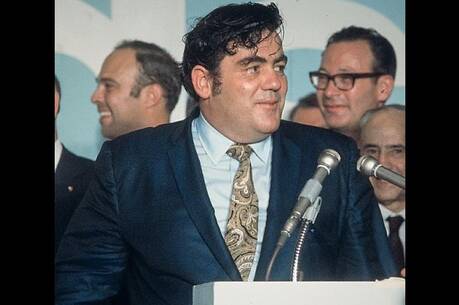Civic Collapse
According to a certain triumphalone might say self-satisfiedview of recent American history, our nation today is a far more democratic place than it was 50 years ago. Then our republic was defaced in so many ways by invidious discrimination. Today, thanks to the civil rights crusades and the women’s movement, doors of opportunity have been opened for those previously excluded.
But there is an unhappy abundance of social science pointing in the opposite direction, indicating steep declines in voter participation and other forms of political activity. Even as American life became more inclusive, fewer people were included in determining the course of public affairs. In Diminished Democracy: From Membership to Management in American Civic Life, Theda Skocpol, a professor of government and sociology at Harvard, addresses this paradox. Skocpol argues that contemporary forms of civic activism exclude in different and perhaps more profound ways, and that our democracy is the poorer for it.
In Democracy in America Alexis de Tocqueville, who visited the United States in 1831 from France, saw the intensity of our civic involvement as a key to understanding us as a people. Diminished Democracy employs much the same key. Like de Tocqueville, Skocpol’s real interest is democratic government, but the voluntary associations that make up civil society command her immediate attention.
Allowing that her predecessors had examined political parties and religious denominations, often in great detail, Skocpol and her research team set out to document every other association in history that enrolled at least 1 percent of the American population. The result is a veritable geography of American civic life: Masons and Odd Fellows, Mothers Against Drunk Driving (MADD) and P.T.A., A.A.R.P. and Ku Klux Klan, Knights of Columbus and Knights of Labor.
Consciously or unconsciously, these organizations imitated our federal representative government in structure and action; and in so doing, Skocpol found, they introduced the skills of self-government to a surprisingly wide sample of the American public. Members and officers of voluntary federations were tutored in the organizational skills they would need to participate effectively in democratic politics, Skocpol explains. Of necessity, rotating leaders learned how to run meetings, keep record books, make speeches, and organize events...teach[ing] countless numbers of Americans what it meant to be a presiding officer, a secretary, a treasurer, an elected chaplain, a representative of a local group to a higher representative body, and so forth.
But soon after the Second World War these bulwarks of American civil society began to crumble. The social movements of the 1960’s helped cast the often exclusionary civic associations in a dated and unflattering lightafter all, the many fraternal associations (not to mention the Ku Klux Klan) tended to be segregated by race, gender and creed.
But Skocpol does not regard this liberal social trend to be the most important cause of American civic collapse. Rather, she contends that community elites who once animated these associations found more efficient outlets for their activism. Those in the burgeoning professional class who were interested in service could support a nonprofit group focused on their chosen social malady; those interested in politics could choose an advocacy group or Political Action Committee devoted to their favorite cause. Fraternal orders, service clubs and political parties shriveled in the new environment; groups like Common Cause, the Children’s Defense Fund and a bouquet of right-wing direct-mail organizations flourished.
Such institutions without members, or associations with only mailing list adherents promised the busy professional a kind of instant gratification that distinguished them from the older membership-based groups. Why should highly trained and economically well-off elites spend years working their way up the local-state-national leadership ladders of traditional membership organizations when they can, instead, simply send checks to advocacy groups, or contribute to service providers, or serve on the board of their favorite charities? Skocpol asks.
And why should they assume the hard work of building popular support for their political preferences? Highly individualistic businesspeople or professionals, with formidable civic resources at their personal disposal...now organize and contend largely among themselves, without regularly engaging the majority of citizens. An unfortunate side effect that Skocpol attributes to the new civic universe is its diminished interest in issues of economic equality. Programs like Social Security and the G.I. Bill, which brought a college education to millions of returning World War II veterans, were possible only in a political environment where middle-class and working-class voices could be heard.
Seeking signs of hope for today, Skocpol notes that both the A.F.L.-C.I.O. and the Christian Coalition accumulated significant influence in the 1990’s by combining new organizational techniques with old-fashioned membership mobilization. (Perhaps they had to; both represented a similarly plebeian constituency singularly ill-suited to compete with the professional classes on the new turf.)
If the innovations of the Christian Coalition please Skocpol, she keenly perceives the potential dangers of public financing for faith-based social service initiatives. In a poignant observation she notes that 21st-century politicians invoke religion precisely because religious denominations are the last great membership associations in our national life. We can ill afford policies that make them clients of government largesse. Religious leaders heading agencies rather than shepherding congregations will be bad for American civil society. Clergy will become less oriented to their flocksand organized religion will head down much the same road toward management rather than membership that the rest of contemporary civil society has already traversed.
This article also appeared in print, under the headline “Civic Collapse,” in the October 20, 2003, issue.








